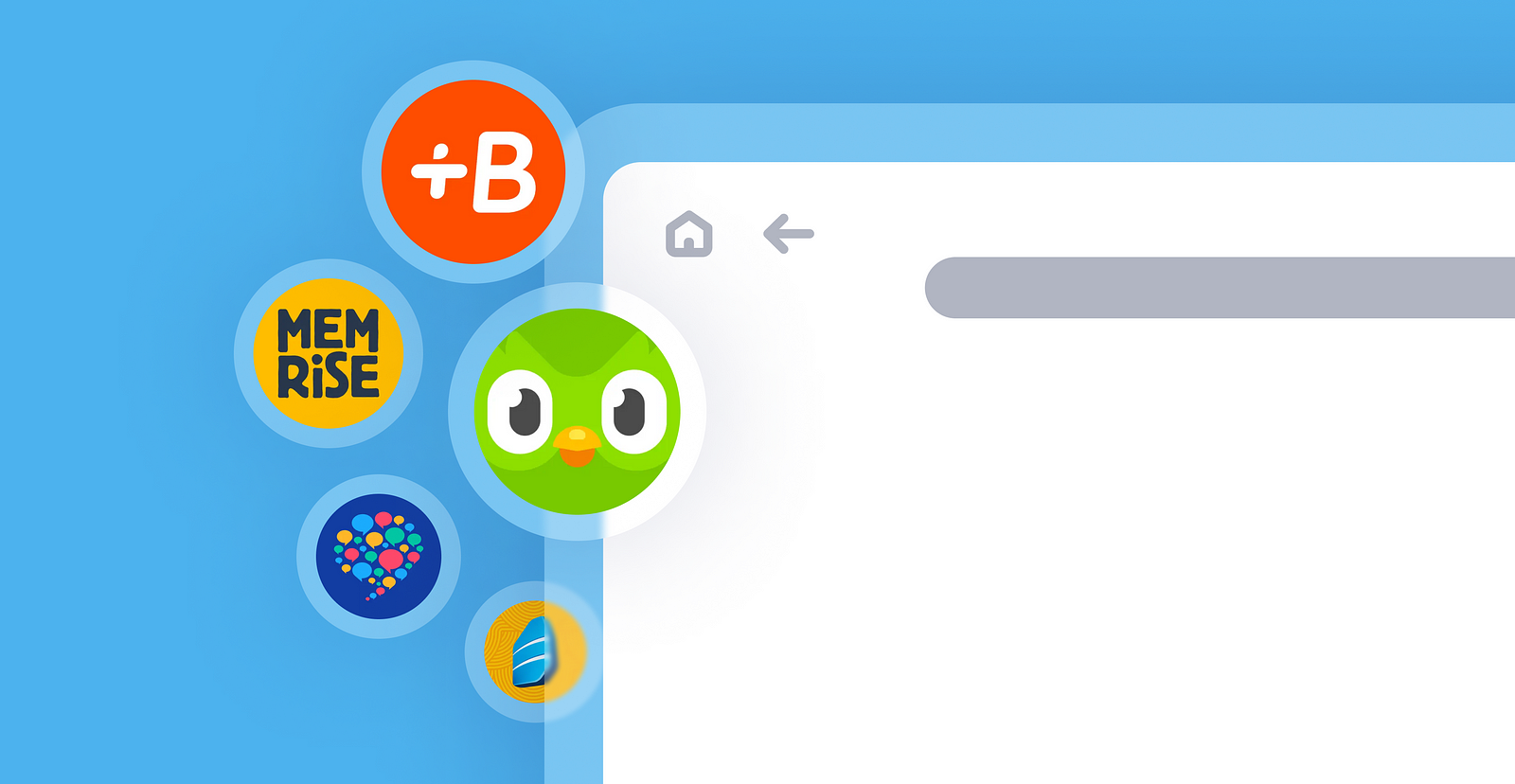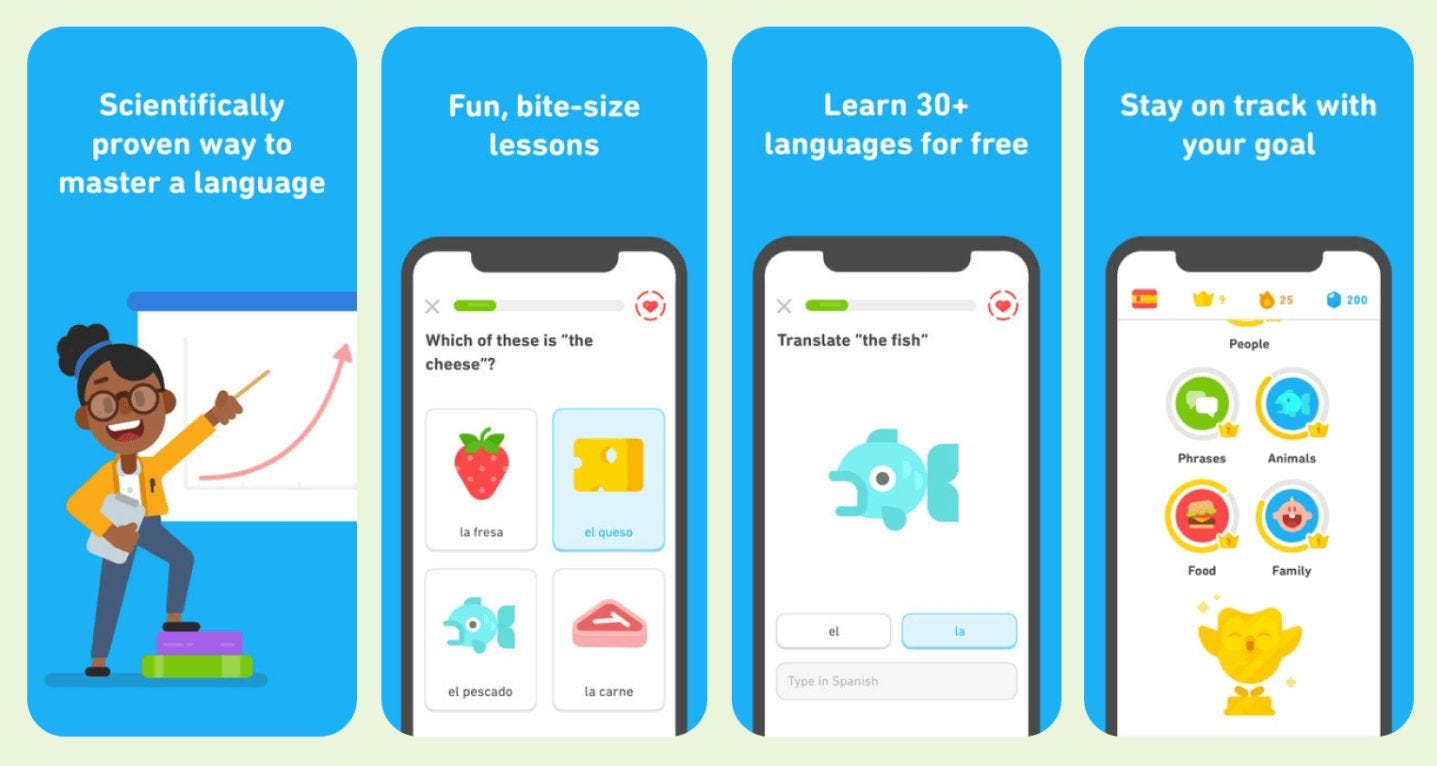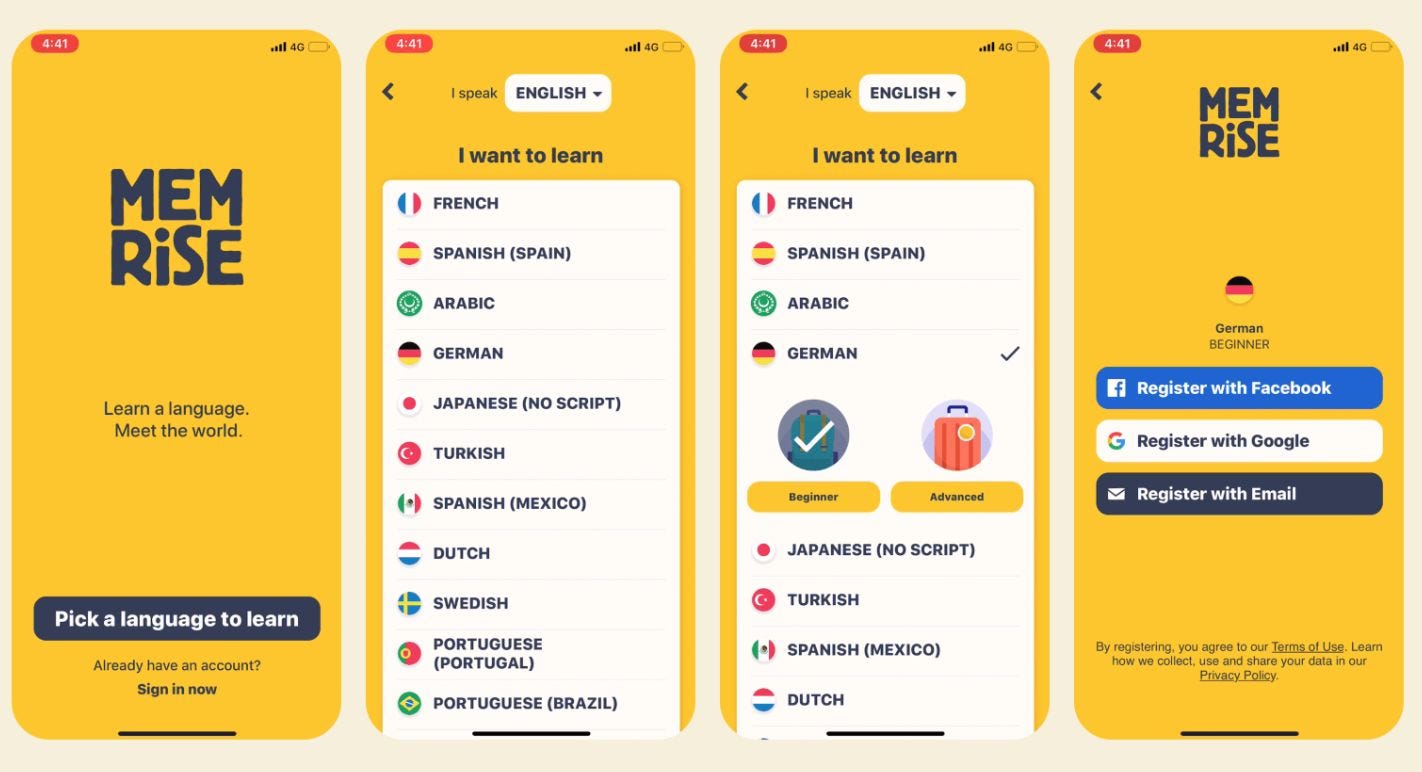
Learning a new language has never been easier, thanks to the wide range of Android apps available. Whether you're aiming to master Spanish, brush up on your French, or tackle Japanese kanji, there's an app tailored to your goals and learning style. In this article, we'll cover the top 10 language learning apps for Android in 2025 and share how developers can monetize such apps through in-app purchases.
1. Duolingo

Duolingo remains the most popular language learning app thanks to its gamified learning experience, colorful design, and short, engaging lessons.
Pros:
- Free with optional subscription
- Fun, game-like interface
- Supports over 40 languages
Cons:
- Limited grammar explanations
- Not ideal for advanced learners
2. Babbel
Babbel offers a more structured learning path designed by linguists. It emphasizes real-life dialogues and grammar-focused lessons.
Pros:
- Focus on conversational skills
- Detailed grammar and culture notes
- Professionally developed content
Cons:
- Limited free content
- Fewer language options than competitors
3. Memrise

Memrise specializes in vocabulary learning using spaced repetition and mnemonic techniques. Native speaker videos enhance pronunciation.
Pros:
- Strong for memorizing vocab
- Uses real-world video content
- Good for beginners and intermediate users
Cons:
- Weak in grammar instruction
- Interface may feel cluttered
4. Busuu
Busuu blends structured lessons with peer feedback from native speakers. AI grammar correction and personalized plans make it stand out.
Pros:
- Interaction with real users
- Personalized learning plans
- Grammar correction tool
Cons:
- Some features require premium
- Fewer supported languages
5. HelloTalk
HelloTalk is a language exchange platform where users can chat with native speakers via text, voice, and video.
Pros:
- Real-life communication
- Built-in translation and correction tools
- Cultural exchange
Cons:
- No formal curriculum
- Depends on finding responsive partners
6. Tandem
Tandem connects learners with native speakers for text and voice chat. Includes optional professional tutoring.
Pros:
- Great for speaking practice
- Language tutors available
- Strong community
Cons:
- Can be difficult to match with users
- Basic features require registration
7. Rosetta Stone
Rosetta Stone is known for immersive, context-based learning without direct translations.
Pros:
- Immersive experience
- Strong focus on pronunciation
- Long-standing reputation
Cons:
- Pricey
- Less effective for grammar rules
8. Drops
Drops focuses on visual vocabulary learning with daily 5-minute sessions. Great for time-limited users.
Pros:
- Fast and focused sessions
- Beautiful UI
- Great for word retention
Cons:
- No grammar or sentence structure
- Premium needed for full access
9. LingQ
LingQ uses authentic content like news, books, and podcasts to help learners acquire language in context.
Pros:
- Real-world content
- Good for intermediate/advanced learners
- Tracks vocab in detail
Cons:
- Steep learning curve
- Outdated design in some areas
10. Mondly
Mondly offers structured lessons, speech recognition, and AR/VR features to create immersive learning experiences.
Pros:
- Interactive chatbot and voice recognition
- Daily lessons and stats tracking
- AR and VR support
Cons:
- May feel gimmicky to some
- Limited content for certain languages
💡 How Developers Monetize Language Learning Apps
Language learning apps offer a lucrative opportunity for developers to generate income. The most common monetization model is through in-app subscriptions, offering users access to premium features like offline lessons, advanced grammar modules, speech analysis, and tutoring.
If you're a developer, understanding how to properly implement and test subscriptions is critical for success. Learn more about setting up in-app purchases in Android apps to optimize your app's revenue model and user experience.
📌 Conclusion
Choosing the right language learning app depends on your goals, learning style, and level of commitment.
- For casual learners, Duolingo or Drops offer quick and fun sessions.
- If you're serious about grammar and conversation, Babbel and Busuu are excellent picks.
- For speaking practice with natives, HelloTalk or Tandem is the way to go.
- And if you prefer real content, check out LingQ.
Each app has its strengths and weaknesses, but the key to success is consistency - and finding the tool that keeps you motivated. Happy learning!